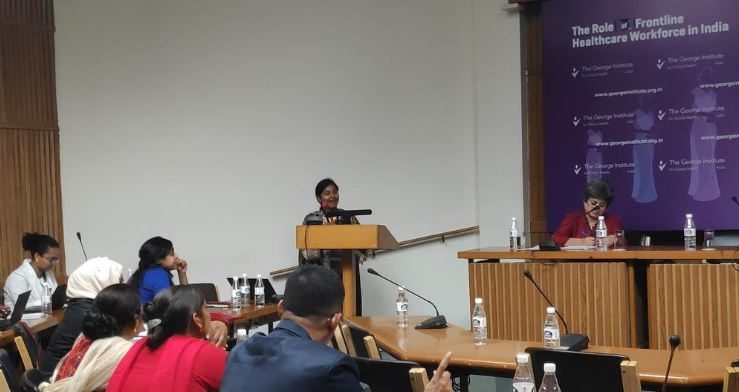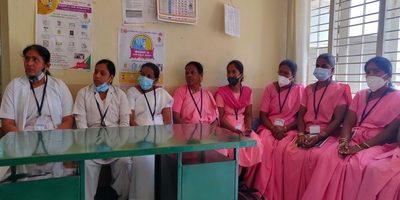
Roundtable on the role of frontline healthcare workforce in India
The George Institute for Global Health convened a roundtable on the role of frontline workers in India in Delhi on 19th November 2018.
Participants from the health sector, government, academic institutions and civil society organizations attended the roundtable, the aim of which was to bring the frontline health workers to the forefront of the conversation on primary health care, especially in the context of epidemiological transition and focus on life-course approach to health.
The focus was also on how to understand how the workforce is trained, remunerated, motivated and retained to deliver Comprehensive Primary Health Care (CPHC). The meeting was held with the backdrop of the Astana conference on primary care, 40 years after the Alma Ata Declaration, nearly one decade of the ASHA program, and the beginning of the CPHC initiative.
India’s newly established Comprehensive Primary Health Care program aims to provide access to essential health care at the community level. Health and Wellness Centres at the village level are being resourced with Community Health workers, Multipurpose Health Workers and a Mid-Level Health Provider.
The round table began with a presentation on the CPHC organisation, rollout and the role of the different frontline health workers in the provision of health care. This was followed by a moderated panel discussion involving community health workers, multipurpose health workers, mid-level health providers and a primary care physician.
The participants explored the key challenges particularly in relation to the interactions of the frontline health workforce team for the delivery of CPHC. Questions raised included: What is the role of community health workers for the prevention and treatment of non-communicable diseases? What is the optimum support/supervision structure for health care teams which promotes integrated care? How does the Government motivate the health workers to perform as a team?
This was followed by presentations on different methods used to assess health worker motivation, perspectives and performance. The role of regulation and policy framework was discussed in the context of labour laws and human rights to chart the course ahead. Some of the questions raised during this session included: What are the lessons that can be learned and what changes might be appropriate for improvement? Are specific policy models (e.g. the payment of ASHAs in some jurisdictions) performing better than others? How can frontline health workers participate in the formulation and implementation of law and policy relating to their work? How do gaps in the law or the law’s reach impact the health of marginalised populations served by frontline health workers?
The final session was about a global community of practice for community health, the role, functioning and activities of the CoP. There was a discussion about the need for collaborative research and implementation projects.






